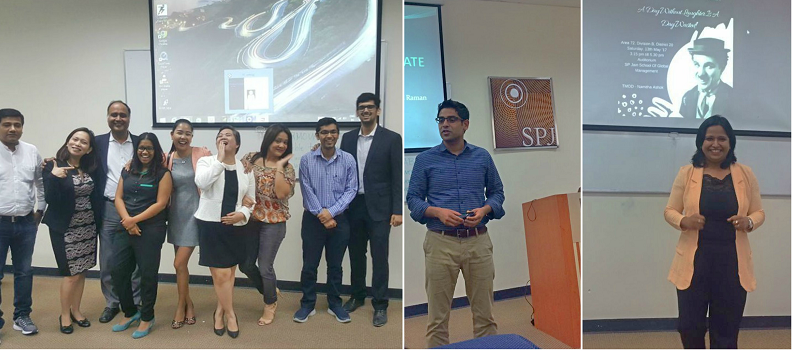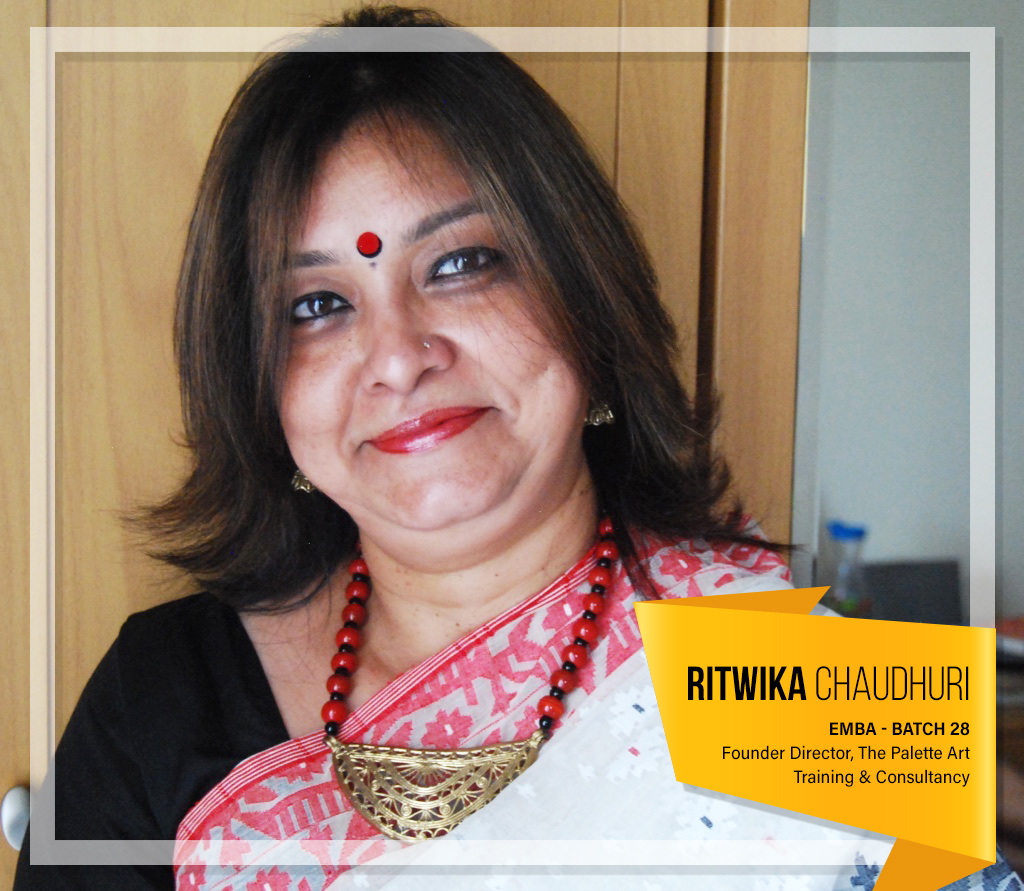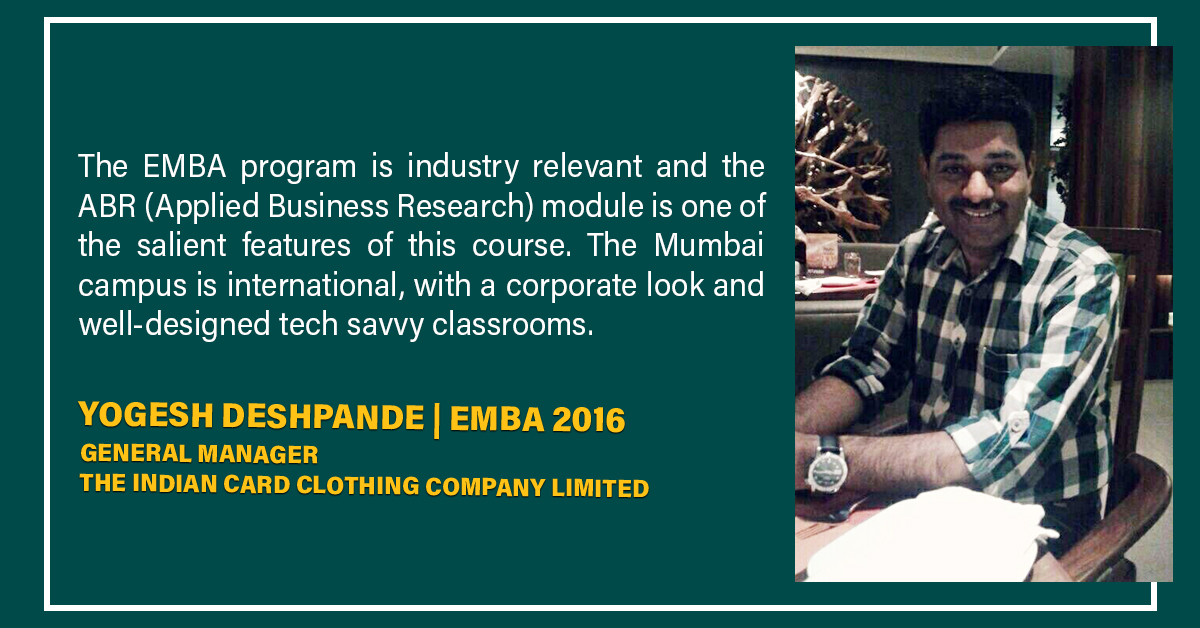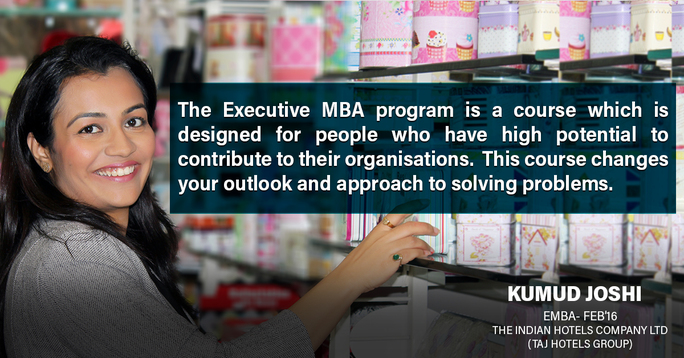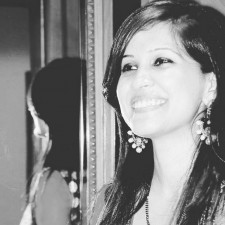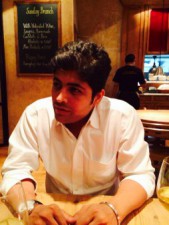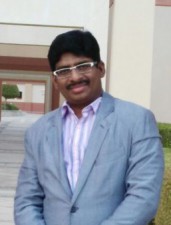Aditya Dholi (EMBA - Class of 2016) points out how investing in oneself only makes people better. He highlights how the S P Jain EMBA is a step in that direction.
Q: What are the factors which led you to pursue Executive MBA?
The decision to pursue an Executive MBA had multiple determinants. With the current educational qualification of a Bachelor of Engineering (Electronics and Telecom), I had reached the maximum possible technical designation in my current company. I had accomplished everything I could with the degree I secured 14 years ago. That’s when I decided to think about going back to higher education to broaden my perspective. My family too has been a major influencing factor. I was keen to pursue my MBA from a reputed B-School. After analysis of cost and opportunity, I chose to pursue the program, part-time.
Q: Briefly share the role you were playing in your erstwhile organization prior to joining EMBA at SP Jain School of Global Management.
I have been working with my current organisation for over 12 years now and have grown from a Senior Software Developer to Principal Consultant (Solutioning). My role revolves around being part of the Pre-Sales function of our products and solution design for the customers. My job role is mostly Techno-commercial based, where I am expected to make the technical product pitch to the customer, define or identify the solution best fitting their needs, then perform the complete bid management from a different documentation (scope, solution, contract), and costing. Following that, I prepare and present the solution across verticals, like Telecom, Media, Utilities, IoT, Smart Cities among others. Within my scope of work, I gain exposure from a business perspective as well as requirement-mapping perspective.
Q: Which B-schools did you apply for and why did you select SP Jain School of Global Management?
My search for a B- school started in early Feb 2016. My current supervisor (an Australian National) insisted upon me doing a part-time program, while still remaining in the workforce. He decided to sponsor a part of my MBA fees. I found out that SP Jain’s EMBA course was starting in Feb 2016 and looked into the curriculum details. I was very fascinated by the course offerings and since I wanted to pursue my MBA from a premier B-School— SP Jain Global was the perfect choice.
Q: Please share in detail the application and final selection procedure at your B-School.
I had to fill the online application with details and academic/professional background. The SP Jain admission team reviewed the documents. As a shortlisted candidate, I was called in for an assessment. This was followed by an online test that was conducted to assess my analytical reasoning, quantitative and verbal skillset. After taking the online test, I was invited for an interview with the Assistant Dean. He assessed if I had the right attitude and approach for the course by means of an interview. This interview involved questions related to practical work/life situations.
The entire process reinforced my belief that with higher education, I would gain the opportunity to broaden my horizon which, in turn would allow me to approach a problem in multiple ways and would help me identify the best solutions.
Q: The program at your B-School is one of the most expensive programs. How have you financed the course?
As I have mentioned, part of my fees is paid by my organisation and I am self-financing the rest. I am from Bangalore and travel on the weekends to Mumbai for the course— this has actually increased my fees by at least 40%. But, I think the decision is worth it— considering that I’m going to get a very good education— one that will broaden my perspective and will enhance my ability to challenge my thinking.
Q: What is a typical day in your life at the campus?
Campus day life starts quite early for me, around 4 AM, when I wake up to get ready and take the 7am flight to reach campus by 9:30 am on Saturdays. Arriving slightly early on campus gives an opportunity to meet other classmates and over breakfast, discuss what happened in their work life during the week, our exams, assignments among other things. The lectures usually start around 10 am and continue up to 5:30-6:00 pm, with two small breaks for tea/coffee and 45 minutes for lunch. The faculty’s methodology of teaching is so interesting and engrossing that we like to keep going on and on despite having a busy work week. Post campus hours too, we as batch mates try to socialise and understand more about each other.
Q: Was it difficult for you to adjust to the student life after a gap of many years? How did you cope with it?
It is more than just external factors that prompted me to pursue my EMBA. I wanted to enhance my skillset to grow in the management cadre. As an Executive MBA student, you have 3 lives at any given time – professional, personal and student life (during the period of his/her course). One has to find the internal courage to overcome the fear of getting back into student life, especially after a long gap, and learn to set priorities at any given point. Initially, yes, it was difficult to cope, and there is certainly a lot of multitasking you take in your stride. You also realise that there are some major sacrifices to be made in the process. However, I must say that my family constantly boosts my morale by providing me their full support.
Q: What are the non-academic activities you are involved in?
I am part of the Academic committee of our batch and we are responsible for managing communication from students to college staff. I am also helping in coordinating Industry Speaker programs, coming up with ideas to have more and more students’ involvements in such activities.
Q: How much industrial and international exposure does your program provide you?
The program sees a distinguished set of people— both from academia and industry— who form the faculty at SP Jain. Their visits are an opportunity for us to know about their work experiences and relate the practical application of our knowledge and learning. Distinguished professionals from varied industries provide keen insights into business challenges/opportunities.
From an international perspective, we had our orientation in Dubai where we had the opportunity to meet people from different industries. This opened an avenue for me to gain great insights about the cultural mix and business environment of a completely different region. We also have a Global Immersion program which allows us to work on an international company— as a case study. This gives us an opportunity to research and apply the learnings of a different market and its business practices— enabling a higher level of exposure.
Q: What is the difference in teaching method applied by guest lectures delivered by academicians and industry practitioners? Please share the best elements from both.
Fundamentally, Academia and Industry practitioners have different approaches to teaching. Academicians will apply a bottom up approach, where in we get our concepts clear and then arrive at the practical applications of those concepts. Industry practitioners apply top down approach, where in we get to understand the business problem/environment/situation and then finally approach the fundamentals required to address the business problem/environment/situation. Both the approaches have their own pros and cons, but arriving at a mix of these subjects, some by Academicians and the rest by Industry practitioners is therefore crucial. I must say that at SP Jain Global, you are not disappointed.
Q: How much is the rigour at the programme in comparison to the 2-year regular MBA?
The rigor is massive, however comparing this course with a regular 2-year MBA is not justified, as the base is not the same. The 2- year regular course mostly has freshers and people with 2-3 years of experience, hence the learning expectation is completely different. In this situation, the rigor on the part-time course is very high as compared to the full-time.
Q: According to you, what is the best aspect of your program and campus?
The campus is lively with all the best facilities on offer. The program itself is very involved and requires us to put in our best effort to learn and progress ahead. The library, classrooms are all equipped with latest technology, and the campus is right in the heart of city. The staff are friendly and helpful, enabling better interactions. All this combines to offer a great learning experience.
Q: Does your program offer placement? Are you willing to participate in the placement process or plan to join your previous organisation?
EMBA students join the program to improve their skill set and add value to their work-life; placement facility is not necessarily an important aspect. I personally plan to continue with my current organisation and look forward to expanding my horizon.
Q: What are your expectations from the program? How would you like to implicate the learning after completing the program?
My expectation from the program is to enhance my learning, understand and apply the concepts being taught, use critical thinking to solve day-to-day business problems and issues, and on a personal note—to develop individual personal effectiveness. I am planning to use learning from the course in my day to day job, starting primarily with how do we approach our customers, prospects, improving internal efficiency in some processes.
Q: What is your advice to the aspirants of Executive MBA?
The Executive MBA program is a course which is planned and made for middle level management people who have potential to grow further and contribute to the company they work for as well as for themselves. The course changes the way you look at problems in multiple ways. Cost is one of the factors. I believe, investing in oneself only makes one better. So best of luck for all the aspirants and I am sure a successful career is waiting after the period of transformation, and the transformation period is the Executive MBA degree.

